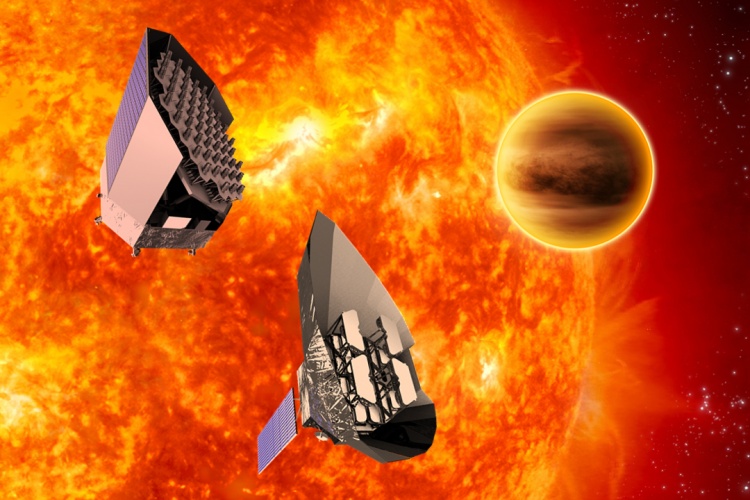UK firm wins €42m contract to help hunt exoplanets
Chelmsford-based Teledyne e2v has won a €42m European Space Agency (ESA) contract to develop highly sensitive light detectors for the upcoming PLATO mission to hunt exoplanets.

Two PLATO concepts (Credit: ESA)
PLATO (Planetary Transits and Oscillations of stars) will carry 26 telescopes mounted on a single satellite platform, enabling it to survey huge areas of sky simultaneously. Each telescope will be equipped with four Teledyne e2v Charge Coupled Device (CCD) visible-light detectors. The detectors work by measuring the dimming of a star’s light when a planet passes in front of it, allowing scientists to predict which exoplanets may have atmospheric conditions conducive to life.
“The basic principle is similar to detectors that are used in digital cameras, but those used in PLATO are very much larger and more sensitive,” Teledyne e2v’s Dr Paul Jorden told The Engineer. “The detectors are made of silicon which converts light from the stars into electrons which can then be read out through an integrated circuit.”
So far, astronomers know of several thousand exoplanets orbiting stars outside our solar system. Many of these were discovered by PLATO’s predecessors, the Kepler and CoRoT space missions, which were also equipped with Teledyne e2v’s CCD detectors.
Register now to continue reading
Thanks for visiting The Engineer. You’ve now reached your monthly limit of news stories. Register for free to unlock unlimited access to all of our news coverage, as well as premium content including opinion, in-depth features and special reports.
Benefits of registering
-
In-depth insights and coverage of key emerging trends
-
Unrestricted access to special reports throughout the year
-
Daily technology news delivered straight to your inbox











UK Enters ‘Golden Age of Nuclear’
The delay (nearly 8 years) in getting approval for the Rolls-Royce SMR is most worrying. Signifies a torpid and expensive system that is quite onerous...